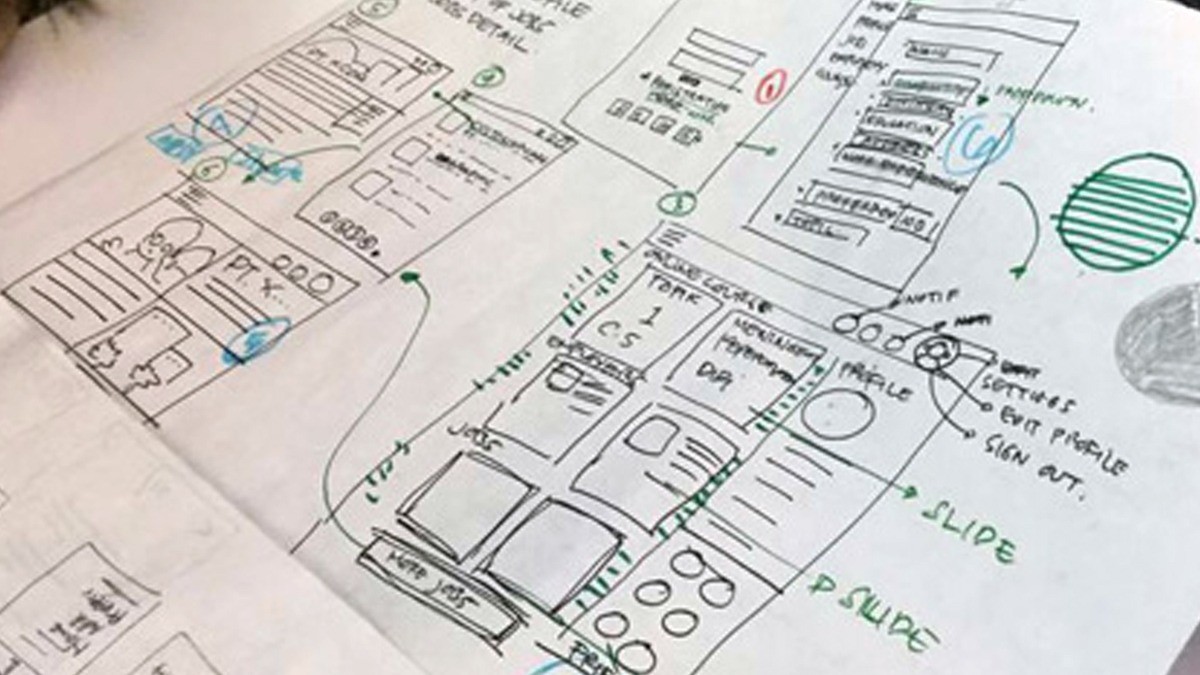Have you ever wondered what a UX researcher actually does, and how their work changes as they grow in their career? Whether you’re hiring one or becoming one, it helps to know what to expect.
In this post, I’ll walk you through what junior, mid-level, and senior UX researchers usually do, and what kind of skills and impact they bring to a team.
Junior UX Researcher (1–3 Years of Experience)
Junior researchers are just getting started. They usually support others on the team and sometimes run small, low-risk projects on their own. At this stage, they’re focused on learning how to use research tools, follow research plans, and communicate their findings clearly.
You can expect them to understand basic research methods, manage their time, and improve with feedback. They’ll often work closely with more experienced teammates and focus on growing their skills every day.
At this stage, you can expect:
- Familiarity with foundational methods like interviews, prototype testing (primarily using the think-aloud protocol), and surveys.
- On interviews have tendency to ask direct, surface-level questions, focusing on gathering clear but sometimes limited insights.
- Many UX designers who include research tasks in their daily work may also align with this category.
- A need for mentorship and guidance, as they build confidence and refine their research approach.
Mid-Level UX Researcher (3–5 Years of Experience)
Mid-level researchers are more independent. They can run research projects from beginning to end. They help teams choose the right method for each goal, and they make sure the user’s voice is heard when decisions are made.
They work with product and design partners to find out what users need, and they turn that information into clear insights. These researchers also help others brainstorm ideas, run testing sessions, and think through the real-world limits of design and tech.
At this level, you’ll see someone who knows how to work with teams, guide projects, and share findings that shape product choices. They might also start mentoring junior researchers.
At this stage, you can expect:
- More elaborate interviews and surveys, with questions that begin to dig deeper into user behaviors and motivations.
- Some ground level experience with methodologies like card sorting, prioritization matrix, heuristic evaluation, and cooperative evaluation.
- Deliverables primarily focused on design improvements and supporting the design team, with emerging connections to broader business goals.
- They present a better autonomy in managing research projects from planning to execution.
Senior UX Researcher (5+ Years of Experience)
Senior researchers bring experience and strategy to the table. They don’t just run studies—they help shape the direction of the product. They support product and design leaders, influence long-term plans, and help teams stay focused on users.
Their work goes beyond research. They build a strong research culture, help teams understand the “why” behind user behavior, and turn insights into business opportunities. They often speak to executives and guide big-picture decisions.
At this level, you’ll find someone with deep knowledge of UX, strong leadership skills, and the ability to manage large, complex research programs.
At this stage, you should expect:
- Hybrid research planning, integrating various methods into a cohesive research process.
- Ability to strategically frame questions to identify fake users and capture subtle user behaviors.
- Proficiency in advanced methodologies that require more environment control skills, such as wizard of oz, trix, focus groups, and workshops.
- Understanding of heuristic evaluations beyond Nielsen’s heuristics, applying more complex and tailored frameworks.
- Deliverables that connect design, service, business, and strategy, often contributing to marketing research and broader organizational insights.
- Leadership in mentoring younger researchers, designers and guiding research strategies.
Senior UX Researcher with a PhD (8+ Years of Experience)
Some senior researchers also have a PhD. This gives them a strong academic background in research methods, which helps when tackling complex problems.
They often lead advanced studies, mentor others on ethics and experimental design, and use a mix of data sources to get clear answers. Their work combines academic detail with real-world product needs.
You can expect them to influence strategy, bring fresh thinking, and help the team move forward with confidence.
At this stage, you should expect:
- Mastery in hybrid research methodologies, often combining techniques seamlessly to answer complex research questions.
- A holistic perspective that views user experience beyond design, incorporating cross-channel cultural experiences. Everything is connected: experience – culture – business – consumer behavior – antropology – economics – technology
- Adaptability in research methods, often modifying or inventing approaches to generate innovative insights.
- Strong contributions to strategic initiatives, influencing design, service, business strategy, innovation ideas, and new product development.
- The ability to introduce unique theoretical perspectives, bring to the table up to date discoveries presented in conferences and thesis, the ability to connect industry projects to a broader perspective, as their academic background often provides fresh and innovative viewpoints.
- Bring new knowledge that they are experts. An example from myself: My thesis connects UX with business management, introduces UX heuristics for cross-channel experiences, and revive a research method from the 1980s: guided fantasy. My master’s focused on usability for e-commerce and the impact of A.I. hybrid recommendation systems on consumers’ behavior.
Final Thoughts
UX researchers play an important role at every stage of product development. From asking the right questions to helping teams make smart choices, they make sure user needs stay front and center.
No matter what level they’re at, a good UX researcher is always curious, empathetic, and focused on solving real problems.
Want to Learn More?
Check out some of my other articles:
👉 Deceptive Patterns of Interaction



